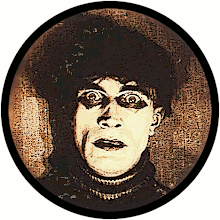Sometimes I just like to yammer about things. This is one of them.
My daughter’s third grade class is currently reading “Where The Red Fern Grows.” I remembered being forced to read this as a child. I only remembered the one scene where a boy falls on an ax and dies. Lucky for me, I had an older brother who warned me about the axing. Of course, since he was an older brother, he had to tell me about it in gruesome detail, adding nasty, blood-spurting touches that weren’t in the original. God, I miss him.
Anyway, I likewise warned my daughter that there was a disturbing scene in the book, and explained it to her very briefly, depriving her of the hilarious trauma that my brother dispensed to me. Her teacher had also warned the class before reading that section. But I remembered nothing else about the book.
She has been enjoying it so far. Over dinner tonight, she told us the plot that she had been told, about a young boy in the Ozarks who wanted nothing more than two hounds. After dinner, she wanted to watch the movie, despite the fact that her class had not yet finished reading the book. She was worried about how it would end, having overheard a snippet of conversation among classmates about the death of a dog. Jokingly (as is my wont), I told her that it ended Hamlet style, with everyone dead. I then reassured her that I had no memory of how it ended, so it probably wasn’t as dire as that.
So, we watched in on Netflix. Turns out, I wasn’t far from the truth. Along with the previously mentioned death of a child, one dog was killed by a mountain lion, and the other died of a broken heart, refusing to eat until it starved to death. My daughter was bawling. Trying to comfort her by telling her that she was crying over the death of fictional dogs only made me look like an asshole. Which I so wasn’t. I was the realistic dad. Thing is, though, when your kid’s crying over something sad in a movie, they don’t want realistic dad, but sympathetic mom. But I digress.
Why the hell is animal death so prevalent in classic juvenile fiction? And why the hell do teachers make us read it? Really. Old Yeller? He was a good dog. Got shot in the head. Sounder? That was another fun one. Charlotte’s Web? The dread specter of death loomed large for almost the entire book for that damn pig, but it was Charlotte who got it in the end.
I had a book once, an anthology of short stories for 8th graders. There was a story in that was seriously, for lack of a better phrase, fucked up. A young boy befriends a kitten and takes it home. His parents, not animal lovers, tell him to get rid of it. So the boy makes a noose out of a shoelace and strangles the kitten to death.
This was in a book for children. Dear God, why? I wish I still had the book. I’ve told people about it, and, horrifically, everyone believes me, because we’ve all read those sorts of stories as kids.
I absolutely understand that children shouldn’t grow up in a vacuum, believing the world to be a carefree charming place where only bad people in Batman movies die. And animal death is still less significant than a human death, and Disney slaughters parents by the hundreds in their movies.
But still, when trying to instill in children a love of literature, shouldn’t we try to preserve their sense of wonder a little while longer? Do we need to cram death down their scrawny little throats at such an early age? I lost various relatives throughout my childhood, including my brother when I was 15. Reading about it as a child? Not a barrel of laughs. More like a keg of lay-awake-at-night-staring-at-the-ceiling-contemplating-your-own-mortality-in-your-Spiderman-Underoos.
Why are these books classics? We all (barring teachers, naturally) have read them exactly one time: back in school when we were made to. And then we never read them again. Who’d want to?
Of course, as adults we read these sorts of things, because they are made for adults. “Titanic” is one of the top-grossing movies of all time. Women love to watch it and weep. For men, it’s “Kill Bill Vol. 2.” (Why did it have to suck so bad, Quentin? WHY?) We can separate cinematic or literary death from real death. But kids can’t. Everything is so realistic and immediate for children.
If I were a smarter man (and I’m already pretty smart), I’d figure out a way to get these books out of schools. Kids should be reading much lighter fare, like the “Wizard of Oz,” or “The Phantom Tollbooth,” or Chilton’s manuals. Let them wait a little while before death rears its ugly head in their lives.
Still, I suppose my up-coming children’s novel “Death Zoo” should at least sell well to schools.
Subscribe to:
Post Comments (Atom)

No comments:
Post a Comment